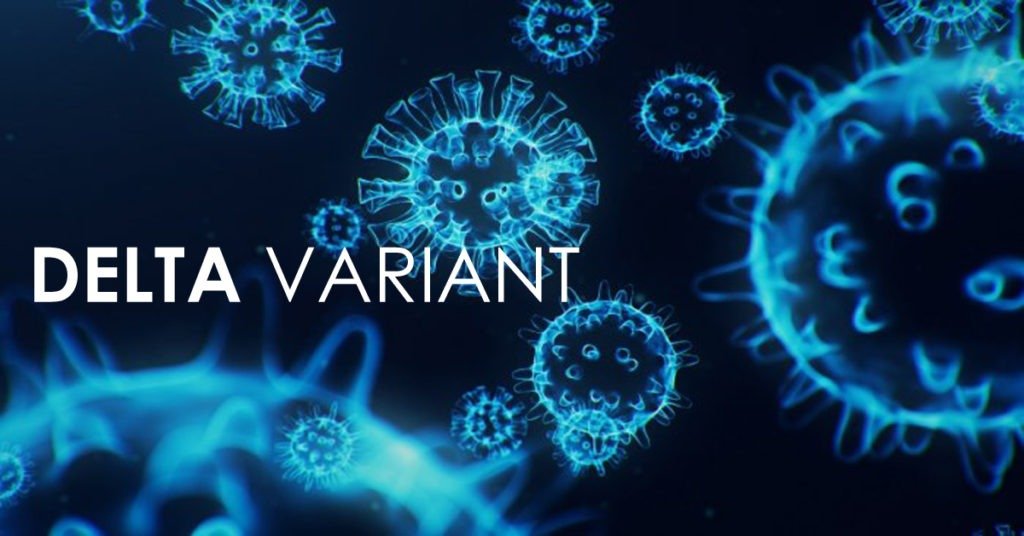How Dangerous is the Delta Variant?

As of this writing, the COVID-19 variants have already branched out into multiple classifications. Some of the most common active viral mutations today are the Alpha (B.1.1.7), Gamma (P.1), Beta (B.1.351), and Delta (B.1.617.2). Like any type of virus, SARS-CoV-2, which is the virus that causes coronavirus disease (COVID-19), constantly changes over time. These changes are known as mutations. In this process, the virus replicates itself and that clone goes through the same procedure, materializing new variants. While these sequences cause the same effects on the infected body, the Delta variant is reported to be the most transmissible of all the mutations.
Delta in the Philippines
As of August 4, almost a quarter of these records came from the National Capital Region where most of the COVID-19 cases are present. The number of Delta cases in the Philippines is posted at 216 — 17 of which are active. With the Delta variant in the equation, some local experts project that the 13,000 active cases in the region may rise up to 500,000 by the end of September if there will be no intervention from the concerned agencies.
That is why the Philippine government has ordered yet again to place Metro Manila under enhanced community quarantine for two weeks. Some areas scattered across the country were also placed under lockdown restrictions for a relatively short period due to increasing cases of the disease. But still, the experts warn that the active cases in the capital region may rise up to 30,000 by the end of September.
Outbreak of Delta Variant
Mutations can happen anywhere where there are active COVID-19 infections and high transmission rates. First discovered in India, the Delta variant of SARS-CoV-2 has become a major health concern after it caused the second wave of the disease in its originating country. At that time, the daily new infections in India was more than 400,000. The number of countries that have recorded Delta variant cases jumped from 62 to 104 within the span of a month only.
This mutation-of-concern spreads more easily than other variants, especially in indoor settings. Like the other mutations that preceded Delta, it also has the ability to reduce the effectiveness of antibodies from COVID-19 vaccines.
Vaccines vs. Delta
Although it has been mentioned above that the Delta variant diminishes the effectiveness of COVID-19 vaccines, health experts still advise the public to be inoculated. Research shows vaccines provide protection against COVID-19 severe symptoms and prevent symptomatic viruses caused by the Delta mutation. Most of these vaccines are in the World Health Organization emergency use lists like Pfizer, Moderna, and Johnson & Johnson.
Meanwhile, organizations, researchers, and scientists across the globe continue collecting data about the Delta variant or the COVID-19, in general, to be able to formulate the best protective solution. The main considerations of their study include the transmissibility and severity of the current and new variants.
Conclusion
Health experts insists on reminding everyone to do their part as an individual to prevent and mitigate the virus even if it has been proven that the vaccines in circulation are effective against the Delta variant. Some of the things one could do are to wear a mask that covers both the nose and mouth, physical distance when outdoors, avoid poor-ventilated places and crowded areas, and wash your hands with soap and water (or sanitizer) more often. All of these small actions are vital while the professionals on the ground continue tracking, studying, and providing scientific and systematic solutions. In case of COVID-19 symptoms, online professional doctors are also available at the tip of your fingers, through MyPocketDoctor. The MyPocketDoctor website and mobile app (Android and IOS) now have Multi-factor security to guard your medical information better. This telemedicine service, other than providing you with online medical consultation, has also been actively providing you with valuable health information to guide you during these difficult times. You can certainly enjoy these conveniences right at your fingertips by downloading the MyPocketDoctor app and talking to our team of doctors about your health concerns. The MyPocketDoctor can be contacted through its Facebook page and/or agent chat on the website www.MyPocketDoctor.com. You may check the Frequently Asked Questions (FAQs) through this website.
References:
www.who.int/news-room/
